Gender and sexual equality remains a major challenge worldwide today, given the persistence of prejudices and discrimination. This is why Equitas, through human rights education initiatives, continues to equip leaders to defend the rights of LGBTQI communities around the world.
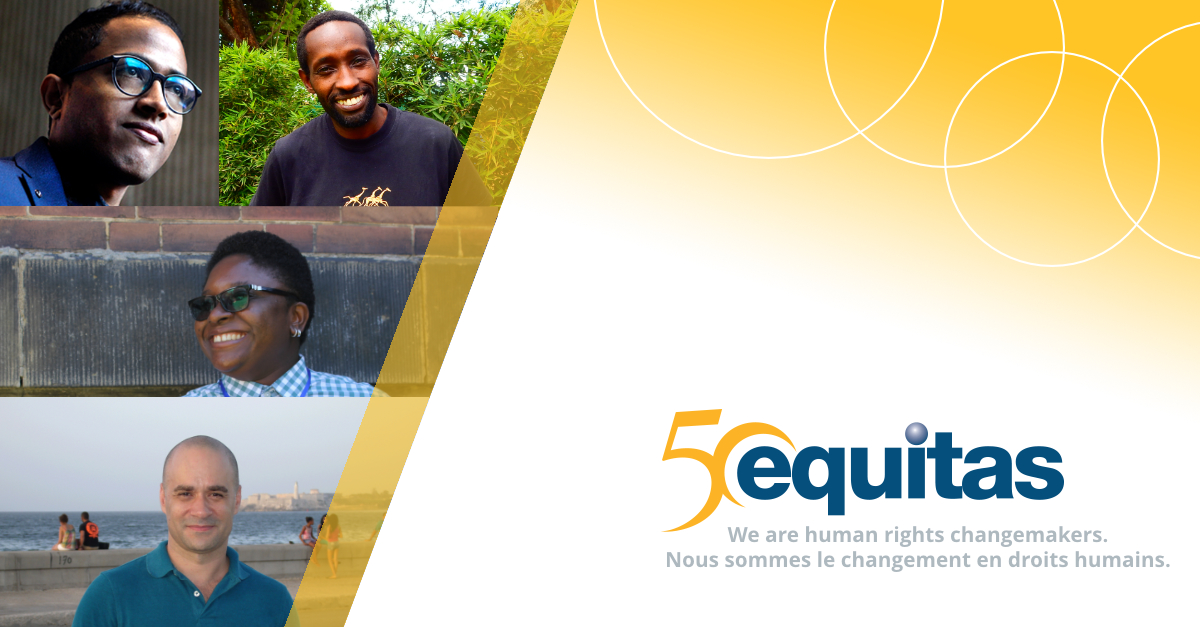
For International Day Against Homophobia, Transphobia and Biphobia, discover the outstanding stories of four human rights leaders who defend the rights of LGBTQI communities with Equitas’ support. From Akudo Oguaghamba, who helps sexual minority women claim their rights in Nigeria, to Alberto Roque, who defends the rights of transgender people in Cuba, these changemakers pursue their work day after day, confident that education, participation and inclusion are three essential ingredients to achieve equality.
These stories are part of the series “We are human rights changemakers” to celebrate Equitas’ 50th anniversary. All through 2017, discover stories of 50 human rights changemakers who have changed lives around the world through human rights education with Equitas’ support. #Equitas50
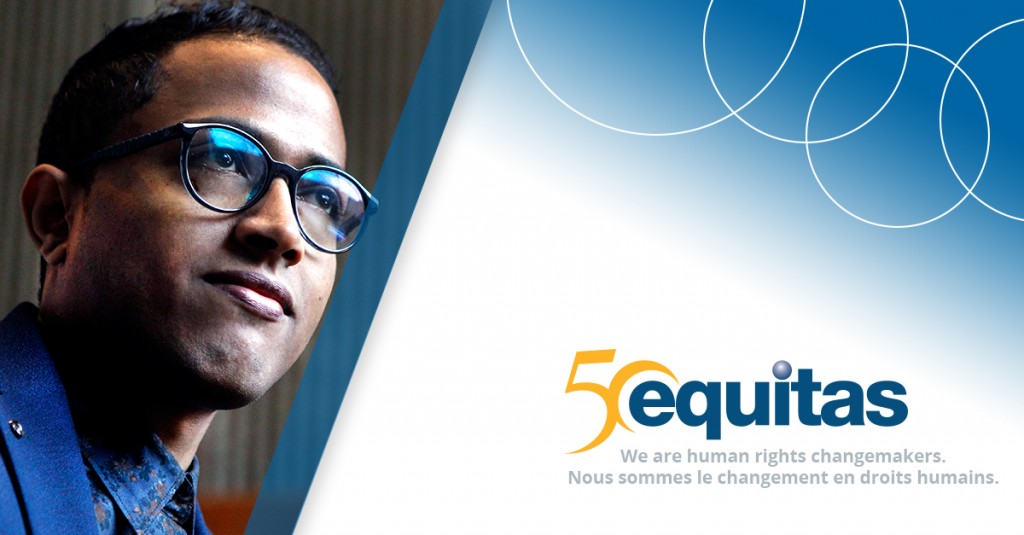
Promoting Rights of Minority Groups in Yemen Through Social Media
– Ala’a Jarban, Yemen / Canada
“I realized that my desire for change was actually feasible, that we could actually have an impact.”
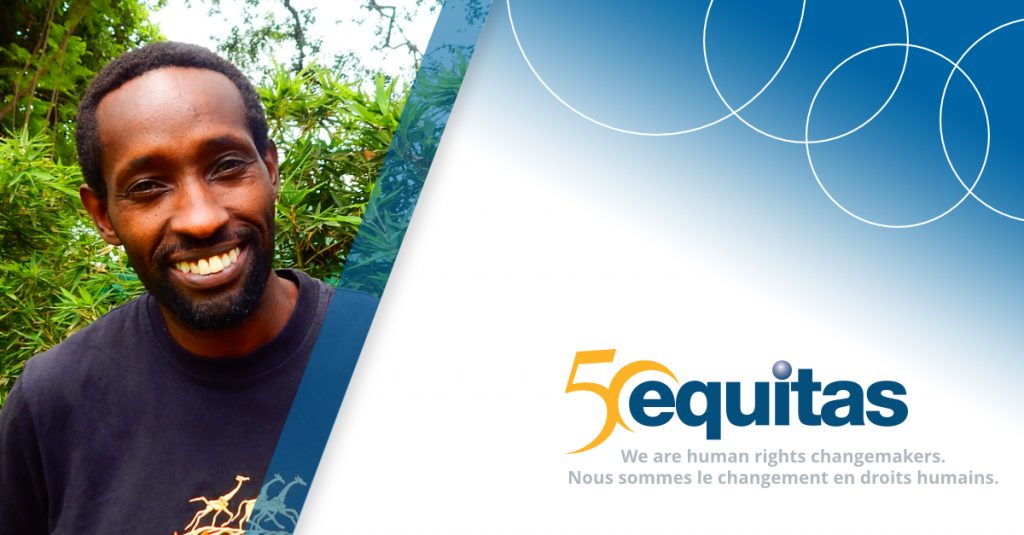
Building Bridges to Raise Awareness for LGBTQI Rights in Kenya
– George Mwai Gichuki – Kenya
“If we’re able to shift toward acceptance and appreciation about a person’s abilities and capabilities beyond their gender, we’ll have made a massive shift in our country.”
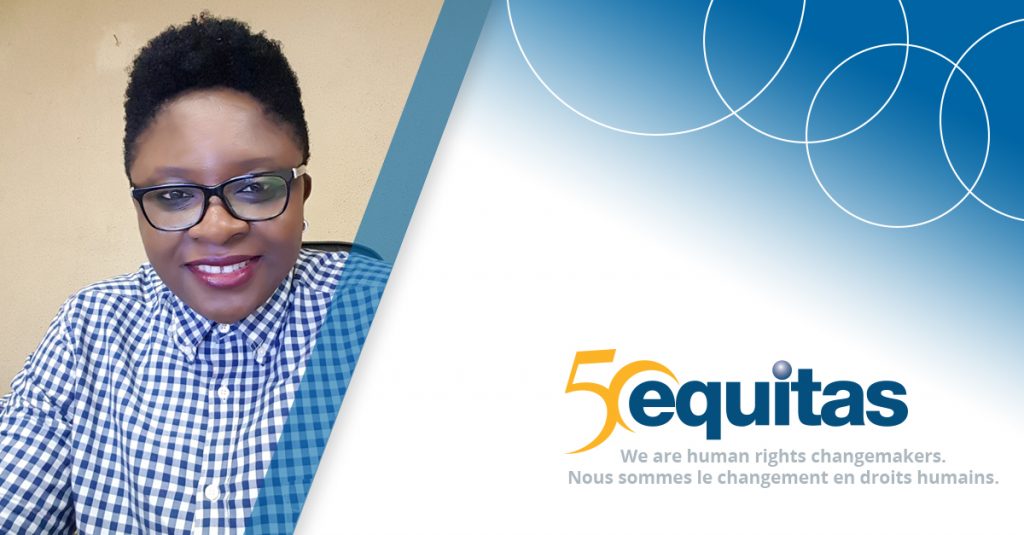
Empowering Sexual Minority Women in Nigeria
– Akudo Oguaghamba – Nigeria
“The most beautiful part of this is people wanting to give back to the community. Like I have to do this not for me, but for the community. I have to do it somehow.”
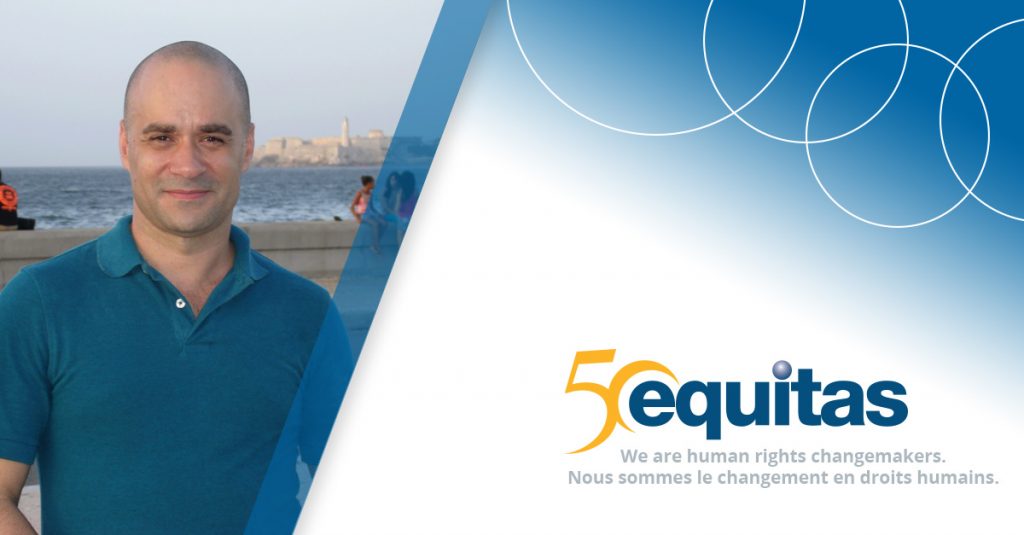
Promoting LGBTQI Rights in Cuba
– Alberto Roque Guerra – Cuba
“When I was finally able to begin the training programs in Cuba in 2010, I found it was very deep inside me. As a result of my training in Canada, I found this to be a very easy-going, fluid process. I was able to replicate what I had learned and do it with people who were active and were interested in learning about sexual rights and human rights.”